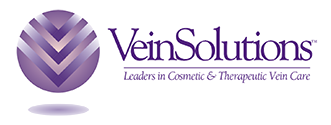Did you know that approximately every 33 seconds someone dies from heart disease and that…
Best Nutrition for Healthy Veins
With January in full swing, many people have their list of carefully crafted resolutions set and are working hard to accomplish new goals. Before January is over, we have one more resolution to add to your list – incorporate the best nutrition for your vein health into your diet.
According to the Society for Vascular Surgery, varicose veins – veins that appear thick, ropey, and knotted – impact 35% of people in the United States. While these veins can be painful, there are actions you can take yourself to help prevent and manage them, along with other venous diseases. One step you can take right now is to update your diet to include foods that help your vein health.
What nutrition should you incorporate to help ensure healthy veins? We’ve listed a few ideas to help shape a balanced diet. Always speak to your physician before starting a new nutrition plan.
Cut down on salty foods and increase foods high in potassium.
One way to protect your vein health is to minimize water retention, which can be done by cutting down on sodium-rich foods and increasing your potassium intake. According to the CDC, we consume most of our sodium through processed foods and by eating food prepared in restaurants.
Here are a few examples of foods high in potassium to help to reduce water retention:
- Beans
- Leafy Vegetables, such as broccoli and spinach
- Almonds and pistachio nuts
- Fruits, such as bananas, cantaloupe and oranges
Eat foods that are high in fiber.
Consuming foods that are high in fiber will help to prevent constipation. This is important, as additional straining can increase the pressure on your veins. The CDC says including fiber in your diet will also keep you feeling full for a longer period of time, which helps you maintain a healthy weight to keep your veins healthy. Good sources of fiber include:
- Oats and whole-grain foods
- Nuts and seeds, such as almonds, pecans and chia seeds
- Fruits, such as apples, berries and pears
Incorporate vitamin C into your meals.
You have likely heard about the importance of consuming vitamin C before, but did you know that it helps your body produce collagen? Making sure to have vitamin C in your diet will help keep your veins strong.
A few suggestions of foods containing higher levels of vitamin C include:
- Citrus and tropical fruits, like oranges and pineapples
- Chili peppers
- Broccoli
- Onions
Add foods that contain flavonoids.
Did you know that flavonoids can improve blood circulation? Keeping your blood flowing creates significant positive impacts on your vascular health. Flavonoids are found naturally in various fruits and vegetables, such as:
- Onions
- Bell Peppers
- Grapes
- Cherries
Move through 2021 confident in your vein health! A combined balanced diet and maintenance of a healthy weight have a significant impact on the road to preventing and managing venous diseases. If you are already suffering from varicose veins, or another venous disease, our board-certified vascular surgeons at VeinSolutions Austin and Georgetown are ready to help. Please visit us here to schedule an appointment, or call our Austin office at 512.452.VEIN (8346) or our Georgetown office at 512.501.4287 for more information.
Don’t forget to follow us on Facebook and Instagram.



